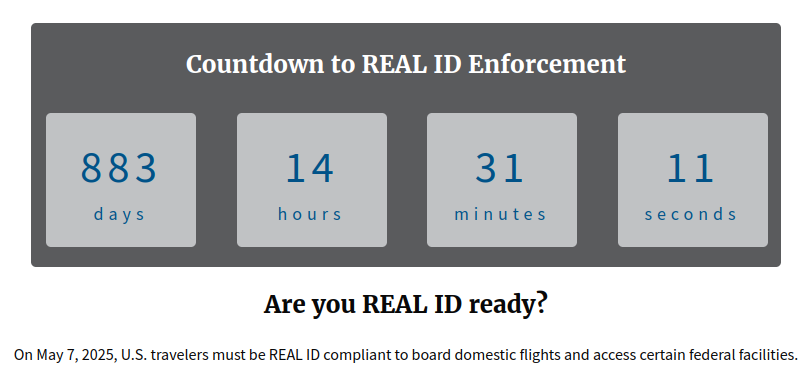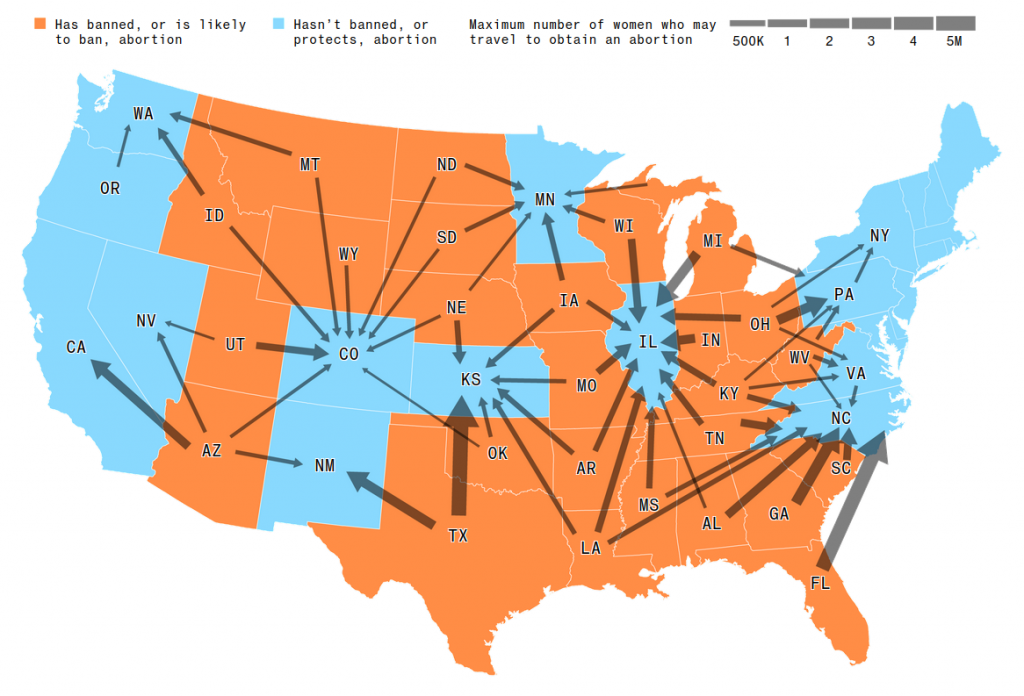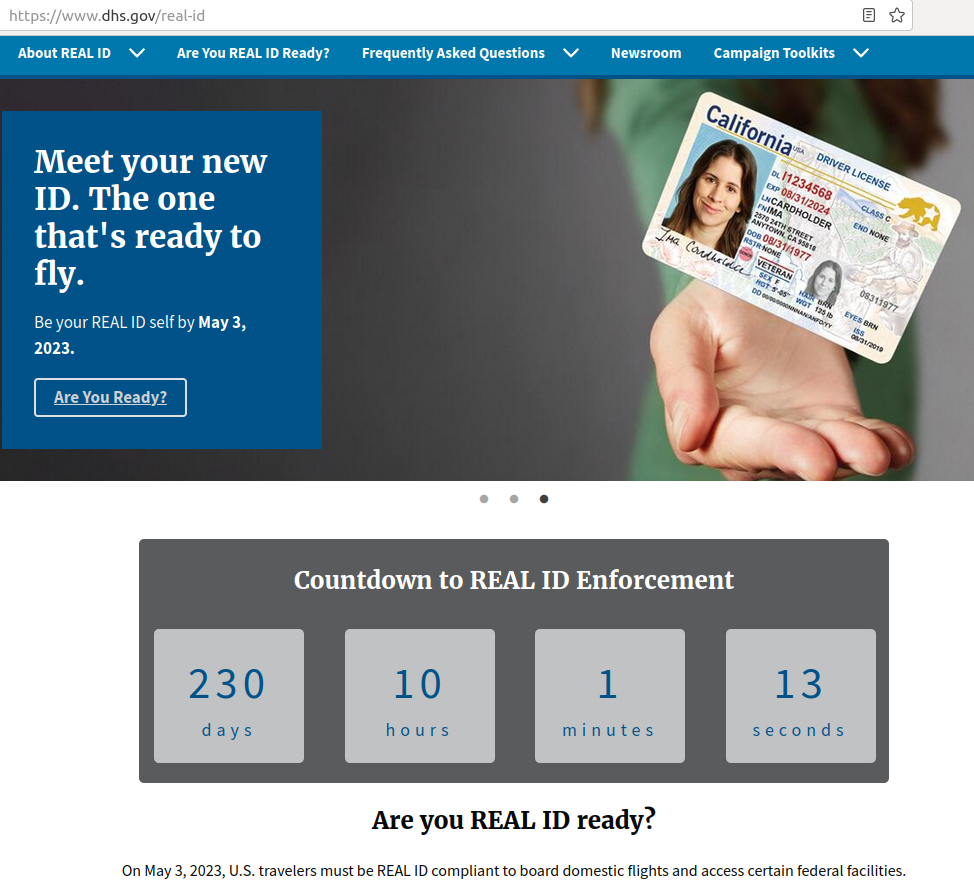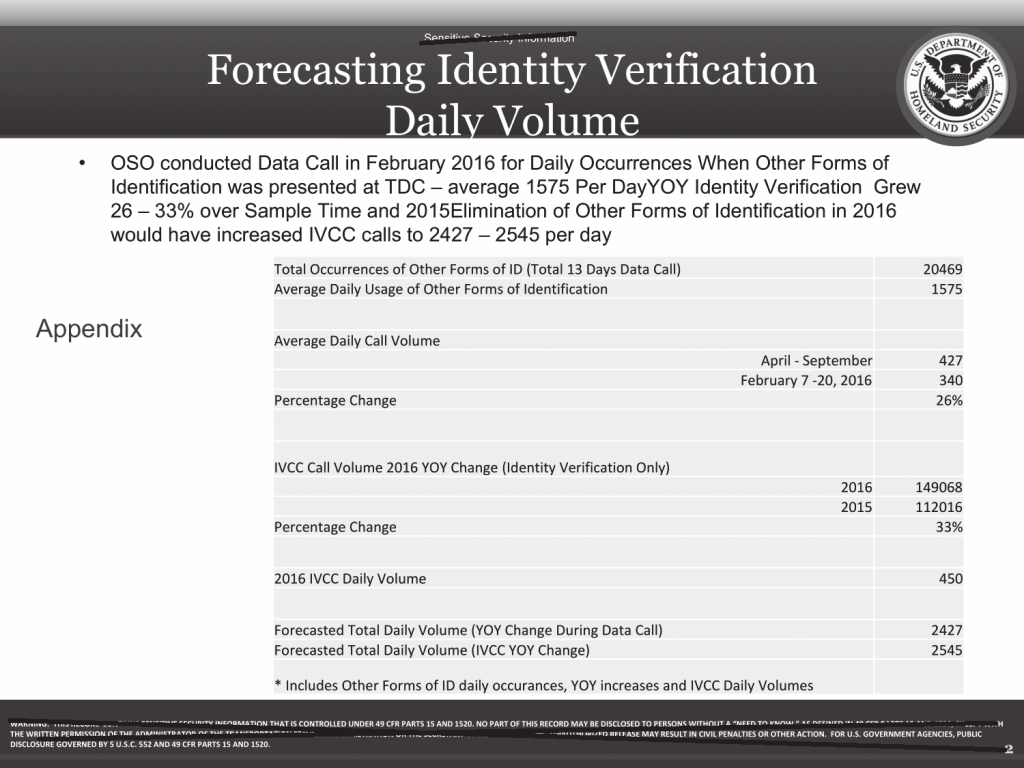New DHS publicity about REAL-ID
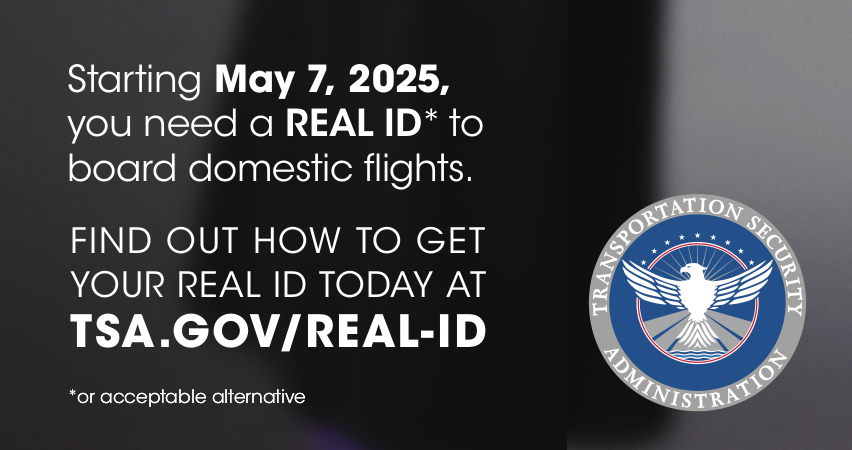
[Portion of airport sign from May 2024 DHS media toolkit.]
“Starting May 7, 2025, you need a REAL-ID* to board domestic flights,” the TSA says, with a footnote in much smaller print, “or acceptable alternative”.
Is this threat for real? No, no, and no.
No #1: The May 7, 2025 date is entirely arbitrary, not fixed by law, has been extended time and time again for years, and can and likely will be extended again.
This is a threat, not a deadline. As our friend Jim Harper notes in his latest article in The Atlantic, “The Real ID Deadline Will Never Arrive”:
[T]hose airport signs and travel stories have been telling us about a final deadline for more than 15 years. And yet, that deadline has never arrived. If past extensions are any indication, it probably never will….
Fortunately, the threat of being denied boarding without a compliant license is hollow…. Under any likely scenario, the political costs of turning Americans away at airports in May 2025 will be too high. Here’s my prediction: Well before next May, the Real ID compliance deadline will be rolled back again.
No #2: Perhaps in response to our criticism of their previous litany of lies about the REAL-ID Act and ID to fly, the TSA has added a footnote to its latest signage, “or acceptable alternative”.
What’s not obvious is that an “acceptable alternative” to REAL-ID to fly is no ID at all.
As the TSA has admitted, thousands of people fly without ID every year. Nothing in the REAL-ID Act, and no current or proposed legislation or regulations, would change that.
No #3: Imposing a requirement to have, carry, or show ID to travel by common carrier– even if that were Constitutional, which we don’t think it would be — would require new legislation and/or regulations.
The TSA has twice (in 2016 and again in 2020) given notice that it intended to propose new procedures to require air travelers to show ID. But it never actually submitted those proposals, much less obtained the required regulatory approvals. Numerous procedural steps would be required before any such plan could go into effect.
Travelers can and should say “No” to these DHS/TSA attempts to intimidate us into surrendering our rights.
But while the DHS and TSA aren’t about to follow through on their latest ultimatum — not now, not next year, and probably never — they aren’t going to stop making these baseless threats until Congress and/or the courts say “No” as well.
States should prepare to litigate to defend their residents’ right to travel. Congress should put an end to this endless shakedown by repealing the REAL-ID Act in its entirety. It was a bad idea when it was enacted in a post-9/11 panic, and it’s still a bad idea today.
